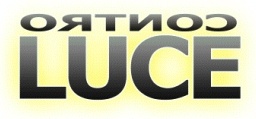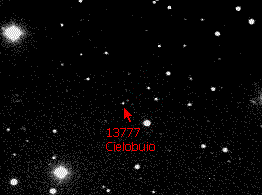22/12/2001 The New York Times
Un articolo che parla delle vicissitudini della legge contro l’inquinamento luminoso nello Stato di New York.
By JAMES C. McKINLEY Jr.
ALBANY, Dec. 21 – Seldom in this capital of compromises can a fight over a bill be called a battle between darkness and light, but that describes the struggle over a bill passed this year that was intended to let more New Yorkers see the stars.
The forces of light, led by Mayor Rudolph W. Giuliani and other mayors across the state, are trying to stop the legislation, which would foster more darkness for stargazers, who want unobstructed night skies.
The bill passed both houses of the Legislature in June with little fanfare or debate. The measure would require the state and local governments to gradually replace streetlights and other outdoor lights with ones that focus light downward rather than spraying it out to the heavens. It would also make it illegal to erect lights that bother neighbors and would direct the state to designate darkness preserves where outdoor lighting would be restricted.
But Gov. George E. Pataki, who prides himself on his environmental record, has not been keen on the bill, in part because it would cost the state millions of dollars to carry out, his aides said. For six months, he has kept the legislation at bay by threatening to veto it if it is sent to him in its current form.
“I appreciate the goal of the bill. In fact my brother is an astronomer, so I mean hés got to be in favor of it,” the governor said this week during a radio interview. “And I remember going with him many a time and looking out in a telescope and trying to find the darkest part of the sky.
“In concept,” he said, “the idea of taking measures to make our energy use lower when it’s unnecessary and to help neighbors from being blinded in the middle of the night is something that I would like to support.” But, he added, he did not know whether he would sign the bill, because he had not read all the provisions.
The sponsors, Senator Michael A. L. Balboni and Assemblyman Alexander B. Grannis, have proposed amendment after amendment in an effort to satisfy the governor’s concerns, so far without success.
Mayor Giuliani and others have argued that the measure would not only cost hundreds of millions dollars for new lights but would also jeopardize the safety of urban residents, since cities could no longer light up high-crime areas as they see fit, without the statés approval.
But astronomers, environmentalists and groups like the International Dark-Sky Association argue that the dome of glaring light over cities and towns from mercury-vapor bulbs and other security lights is a form of pollution. They argue that the current lighting systems keep people from seeing the stars, disrupt the rhythms of wildlife and waste millions of dollars on light projected upward.
“The city could save money in the long run,” said Susan Harder, a retired art dealer from East Hampton who is a member of the International Dark-Sky Association. “There is a horrible financial waste.”
If Mr. Pataki were to sign the bill, New York would become the seventh state in the nation to enact a light- pollution law intended to allow people to see the stars better. In addition, hundreds of municipalities in North America, including San Diego, Tucson and Calgary, Alberta, have converted to the downward focused lights.
“This is a major bill,” said Assemblyman Grannis, a Democrat from Manhattan. “This is what noise pollution was a decade ago.”
David L. Crawford, a retired astronomer who heads the International Dark-Sky Association, based in Arizona, said recent studies suggest about 70 percent of the people in the United States cannot see the Milky Way because of light pollution.
“That part of the environment is disappearing and disappearing fast,” he said. “If the children aren’t in touch with the sky, it’s really criminal. The only place they get to see these things is in an artificial environment, a planetarium.”
But Mr. Giuliani and other city managers are less worried about children learning the constellations than they are about deterring crime. They are also concerned about the cost of installing new fixtures and what the new lights might do to street lighting systems based on older lights.
In a letter to Mr. Pataki, Mr. Giuliani said replacing the city’s 180,000 streetlights with fixtures that focus downward, known as full cut-off lights, would create patches of dark on the roadways.
The city would have to double the number of streetlights, Mr. Giuliani wrote, to keep the lighting even, at a cost he estimated at $700 million. That sum would not include the cost of changing 130,000 other floodlights in parks, playgrounds, overpasses and above signs, he said.
The mayor also made it plain he did not want the state meddling in the city’s decisions about lighting aimed at stopping crime. The law would require a city to apply to the state for a waiver to install security lights.
“In terms of public safety it is extremely unwise for a state statute to dictate the appropriate lighting standards to a municipality,” Mr. Giuliani wrote.
Edward C. Farrell, the executive director of the New York State Conference of Mayors, said many city managers are bristling at the notion that local police officers will have to enforce the bill’s “light trespass” provisions, which prohibit putting up lights that disturb a neighbor’s sleep or privacy.
“At a time when local public safety resources are being stretched to the limit because of concerns about terrorism,” Mr. Farrell said, “becoming the light police would be a very low priority.”
Legislative aides say Governor Pataki is also worried the definition of “light trespassing” might be too broad. He also is troubled that the bill treats outdoor lighting solely as an environmental issue, ignoring its role in reducing crime or attracting tourism. Times Squarés lights, for instance, might run afoul of the bill’s provisions, aides said.
“We are still working with the sponsors to remedy some of the concerns,” said Suzanne Morris, a spokeswoman for the governor. “It’s too soon to say what’s going to happen.”
Senator Balboni, a Long Island Republican who sponsored the bill in the Senate, said he still hopes to reach a compromise with the governor. He said many of the governor’s and mayors’ worries about the cost of new lights were shortsighted. “Most of these places would save money,” he said.
Many environmental groups, meanwhile, have been pushing hard to get the bill signed. About a third of the outdoor lighting in the United States is pointed skyward, a federal study has shown. The dark-sky association estimates the country now spends about $4.5 billion a year on what it considers wasted light, the equivalent of 30 million barrels of oil. It is unclear how much energy could be saved in New York.
“This is the only bill passed by the New York State Legislature this year that will actually lead to a reduction in energy,” said Jeff Jones, a spokesman for Environmental Advocates. “We think the bill is great, and could be signed as it is.”





